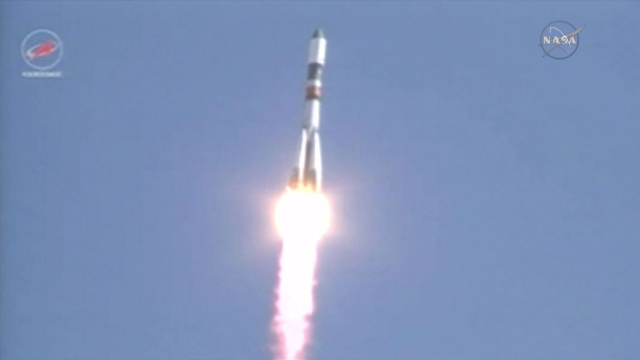-
Tips for becoming a good boxer - November 6, 2020
-
7 expert tips for making your hens night a memorable one - November 6, 2020
-
5 reasons to host your Christmas party on a cruise boat - November 6, 2020
-
What to do when you’re charged with a crime - November 6, 2020
-
Should you get one or multiple dogs? Here’s all you need to know - November 3, 2020
-
A Guide: How to Build Your Very Own Magic Mirror - February 14, 2019
-
Our Top Inspirational Baseball Stars - November 24, 2018
-
Five Tech Tools That Will Help You Turn Your Blog into a Business - November 24, 2018
-
How to Indulge on Vacation without Expanding Your Waist - November 9, 2018
-
5 Strategies for Businesses to Appeal to Today’s Increasingly Mobile-Crazed Customers - November 9, 2018
Russian Supply Ship Blasts Off To Space Station
The ISS now is manned by Russians Gennady Padalka and Mikhail Kornienko and American Scott Kelly. The space station has ample supplies, but with the last resupply mission being successfully completed in April, with two failed launches happening after that, it is clear why this flight is vital in keeping the space station and its daily routine on schedule.
Advertisement
However, the Space Station managers insist that the Expedition 44 crew on board the orbital outpost has sufficient supplies until late October. A Russian Soyuz rocket had a successful launch on Friday, July 3rd and is on track to rendez-vous with the station on Sunday.
In April, another Russian cargo ship spun out of control and burned up upon re-entry, along with all its contents. A decision was also made to roll out the Soyuz-U with the Progress cargo craft to the launch pad. A Japanese mission is aslo set to fly in August, and a private launch from the American firm Orbital is scheduled for sometime late in the year.
Kelly is on his mission to spend a year in space.
The Progress cargo vessel will dock with the ISS at around 10:13 (07:13) Moscow time on Sunday, July 5, according to the mission control.
The Progress, which should dock with the ISS sometime on Sunday is also carrying an refueling module that is carrying 1,900 pounds of fuel, which can be transferred to the ISS through fluid connectors on the station’s docking ring.
While most people within the human-spaceflight community doubtless breathed a sigh of relief upon watching Progress 60’s successful launch this morning, the supply situation aboard the space station is not desperate.
At the time of launch, the worldwide Space Station was flying about 249 miles over northwestern Sudan, near the border with Egypt and Libya.
The Soyuz-U rocket used Friday is an older sub-type of the rocket, which has been the workhorse of Soviet and Russian space programs for almost half-a-century. This is due entirely as a precautionary method to circumvent any issues that may have caused the previous ROSCOSMOS launch to fail.
But losing three out of the past seven cargo missions did more than just cut into crew supplies.
It worked. Nine minutes later, the Progress was safely in orbit.
Advertisement
As for Elon Musk’s SpaceX itself, the Falcon incident was the third failed attempt in as many months. Normally, the station is stocked with six months of supplies.





























